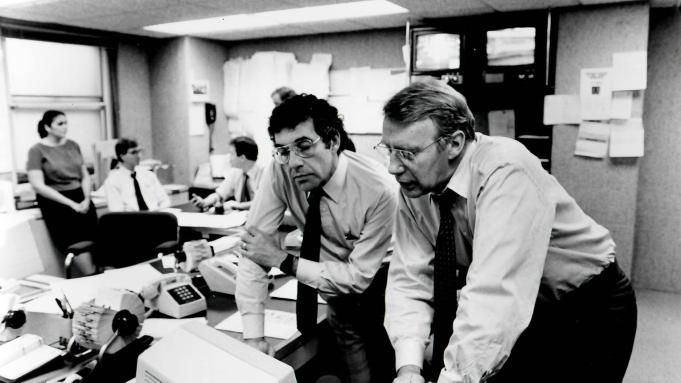
Last night, on The PBS Newshour, they announced that Les Crystal had died.
For many years he had been the Executive Producer for the PBS Newshour, which was called The MacNeil/Lehrer Newshour when he ran it.
Les Crystal was a mentor and teacher to many journalists over the years, but I felt that I owed him a particular debt, as he was responsible for the my career.
In 1988, I quit my job as a producer at CBS Sunday Morning.
It was a crazy thing to do. My career in the TV news busienss was just starting to take off. I was in my late 20's, and I was already on the fast track to success.
Instead, I quit, bought a small hand-held camcorder Iwhich is what we called them in those days), and went to live in a Palestinian refugee camp in Gaza.
I moved in with a family for a month and just kep shooting video.
When I came back to the US, I had no job, no income, I had trashed my promising career - all I had was a pile of tapes.
I had once worked at Channel 13 - the same building where The Newshour was produced. But I didn't know Les Crystal. I didn't know anyone there. I called him up cold and told him what I had been up to.
He invited me over to see him.
We sat in his office and he screened my tapes. (We shot in tape in those days).
I had no idea what my next move was. Maybe quitting at CBS and going to Gaza to shoot what everyone else termed 'home movies' was a bad idea after all.
When he finished looking at my material, Les bought two stories from me, for $50,000.
I was astonished, but from his perspective this was a bargain. If he had to send a reporter, and a crew and a producer to Gaza - particularly for a month - it would have cost him a fortune. Fifty grand was cheap. He offered the price, I would have taken $5,000. At that point, I would have taken $500.
He then assigned a Newshour editor to work with me to shape the stories.
They aired.
Then he said, "what do you have planned next?"
I had not thought that far ahead. I had not thought much beyond how I was gong to pay my rent that month.
He suggested Cambodia.
So I went.
Les Crytal belived in me when no one else did. He also, I think, saw the future.
Of course, on the basis of his support, I went on to build not just a career out of Video Journalism or MMJ, but the career of many others who would pick up theikr own cameras and now phones and head out to report on their own.
But Les was there first.
And without him, I think, perhaps none of what followed would ever have happend.
So thanks, Les.
Thanks for everything.


